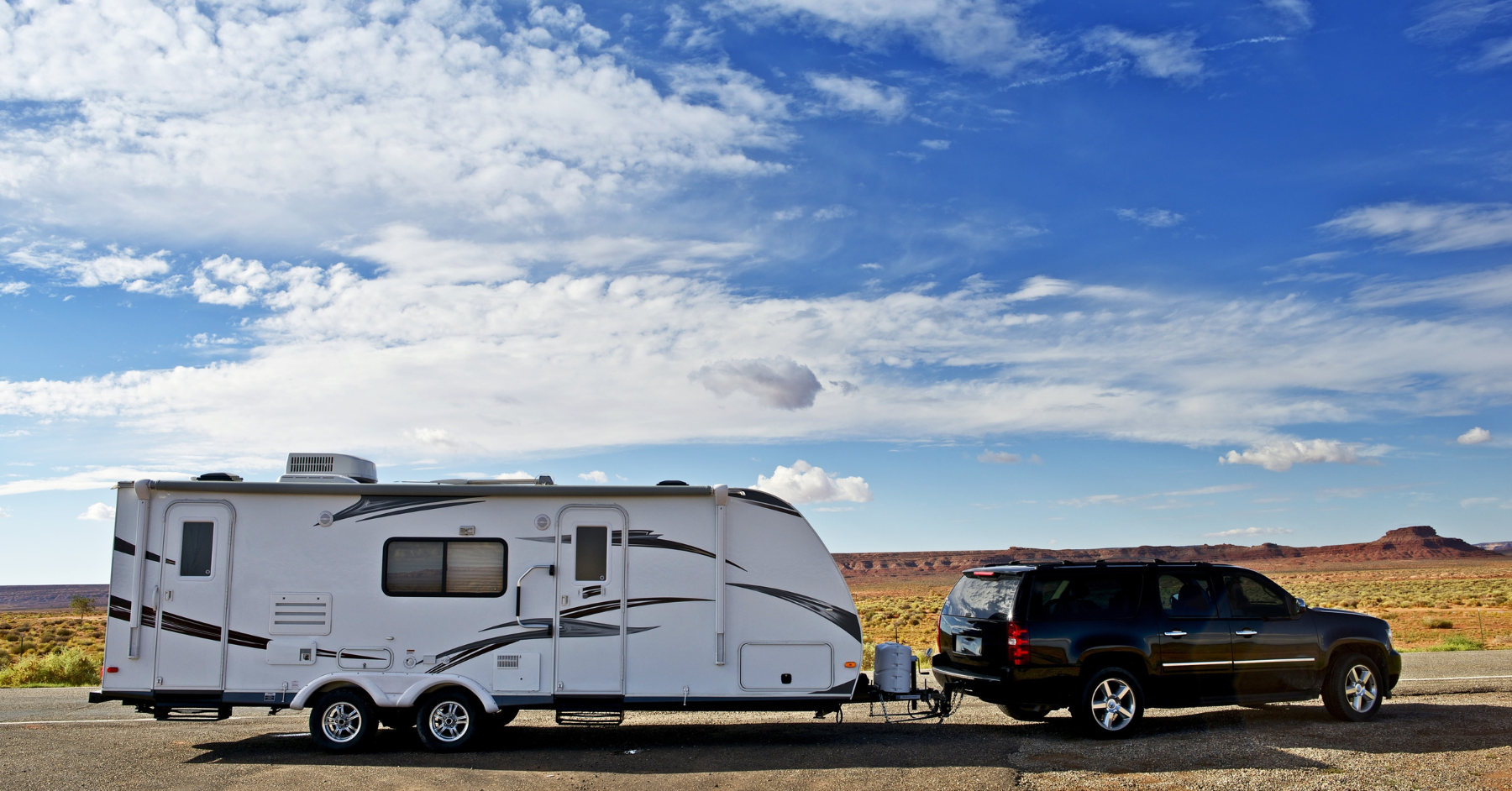If you own an RV or are thinking of buying one, understanding its value is essential. Whether you’re planning to sell, trade, or simply want to know your RV’s worth, having accurate valuation information can help you make informed decisions. Additionally, if there’s a need to transport your RV safely, Interstate Haulers offers a dependable transport solution.
When evaluating an RV, it’s important to consider foundational pricing figures such as the base price and the manufacturer’s suggested retail price (MSRP), which serve as starting points before options or modifications are added.
This guide dives into the most commonly asked questions about RV valuation and shares actionable tips for accurately assessing your recreational vehicle’s worth. Resources like NADA Guides and Kelley Blue Book are frequently used to determine the blue book value or book value of an RV, providing reliable estimates of market value.

Photo by Alain Wong on Unsplash
What Is an RV Value Guide?
An RV value guide is an essential resource for anyone looking to buy, sell, or trade an RV. These guides provide estimated resale values for different types of recreational vehicles, including motorhomes, travel trailers, fifth wheels, and camper vans. By referencing an RV value guide, you can gain insight into pricing trends based on the vehicle’s make, model, year, condition, and additional features.
Popular tools like NADA Guides and RV Trader are widely trusted within the industry for providing accurate and up-to-date information. Using an RV value guide ensures that you are informed and prepared when making financial decisions regarding your RV.
Introduction to RV Values
Understanding RV values is a vital part of the buying, selling, or trading process for any recreational vehicle. Whether you’re a first-time buyer or a seasoned RV owner, knowing the value of your RV helps you make smart decisions and negotiate confidently. RV values are influenced by several key factors, including the make, model, age, mileage, and overall condition of the vehicle.
The National Automobile Dealers Association (NADA) is a trusted authority that provides comprehensive guides to RV values, offering both wholesale and retail prices for a wide range of RV types. From travel trailers and truck campers to motorhomes, NADA’s data is used by dealers and consumers alike to assess the fair market value of RVs. By understanding these values, you can ensure you’re getting a fair deal whether you’re buying, selling, or trading your RV.
Is There an RV Kelley Blue Book?
When it comes to valuing vehicles, Kelley Blue Book (KBB) is often the first name that springs to mind. However, many people don’t realize that KBB doesn’t offer RV valuations. While KBB is a trusted resource for passenger vehicles and trucks, RV owners need to turn to specialized tools for accurate valuation.
Alternative RV Valuation Resources
Instead of KBB, RV owners rely on resources like the following to determine RV values:
- NADA Guides (National Automobile Dealers Association): A comprehensive resource offering accurate pricing data for most RV types. NADA RV values are determined using the NADA guide, which helps users find the value of their specific RV model.
- J.D. Power RV Values: Access detailed specifications and approximate resale values across various RV categories.
- RVUSA and RV Trader: These platforms provide both RV resale values and current market listings to compare.
The NADA guides value calculation takes into account factors such as model year, options, and condition, which are important for understanding RV depreciation over time.
In a later section, we will provide an example of how to use these resources to value an RV.
How to Find the Value of Your RV
Determining your RV’s value isn’t as simple as checking one website. To get started, search for your specific RV model and compare rv prices across different platforms to get a sense of the current market. Here’s how to get an accurate estimate with multiple steps:
Gather Essential Details
Make a list of your RV’s key features, such as:
- Make, model, and year (e.g., Forest River Cherokee, 2018).
- RV type (motorhome, fifth wheel, travel trailer, etc.).
- Specifications including mileage, condition, and special features like solar panels or upgraded appliances.
Leverage Online Tools
Input your RV’s details into platforms like NADA Guides or RVUSA to get a suggested price range and see the suggested list price (manufacturer’s suggested retail price or MSRP).
- Pro Tip: Consider checking multiple valuation tools to compare suggested list prices, as these can vary and serve as a starting point for negotiations.
Compare Listings
Look at listings for similar RVs in your area. The value of a used vehicle can fluctuate based on market demand, season, and location.
Understand Market Influencers
Several factors influence an RV’s value:
- Condition: Excellent or below-average condition can significantly impact resale value.
- Mileage: High mileage typically lowers a vehicle’s worth.
- Features & Upgrades: Items like modern kitchen setups or smart systems may boost value.
- Market Trends & Market Conditions: Seasonal demand (e.g., summer travel season) and broader market conditions, such as economic shifts or industry trends, can affect prices.
By assessing these factors, you’ll have a clearer understanding of your RV’s approximate value.
Where Can I Find the Value of a Used RV?
When it comes to used RVs, understanding the true resale value is paramount. Knowing the retail value and rv worth of a used RV is essential, as these figures serve as a starting point for negotiations and help you estimate what dealerships might offer.
Here’s a breakdown of popular platforms RV enthusiasts and dealers rely on to determine your rv’s value:
1. NADA Guides
NADA is among the most trusted tools for RV owners and dealers alike. It offers values based on historical data and real-world sales. You can find everything from the average retail price to trade-in values for used RVs.
- Pros: Easy to use and offers a wide selection.
- Cons: Some data may lag market trends.
2. RV Trader
RV Trader combines valuation tools with real-time listings, helping you compare your RV’s specs with others on the market.
- Pros: Includes up-to-date resale values and dealer trade offers. Private sellers can also list their RVs directly on the platform.
- Cons: Focuses primarily on current sale prices rather than calculated book values.
3. J.D. Power RV Values
If you’re looking for accurate RV data and comparisons, J.D. Power offers detailed RV values by category (e.g., travel trailers, truck campers).
J.D. Power RV values are a go-to resource for anyone looking to determine the true market value of an RV. Their detailed pricing guides include the manufacturer’s suggested retail price, average retail price, and low retail price for a wide variety of RVs.
This information is invaluable for both dealers and consumers, as it provides a clear picture of what an RV is worth in today’s market. Whether you’re buying a new RV, selling a used one, or simply curious about your vehicle’s value, J.D. Power’s data helps you make informed decisions. By comparing these values, you can set realistic expectations and negotiate effectively, ensuring you get the best possible price when buying or selling your RV.
- Pros: Comprehensive appraisal options, and most dealers rely on J.D. Power for trade-in values.
- Cons: Priced premium reports limit free-access resources.
4. RVUSA
RVUSA offers a robust database for researching used RVs based on similar models and dealer listings.
- Pros: User-friendly interface with a good balance of valuation and market data, and features listings from local RV dealerships.
- Cons: Limited insights into private party value.
Explore these tools to build a solid understanding of your RV’s current worth and potential resale range.
Understanding RV Depreciation
RV depreciation is a key factor that affects the value of your recreational vehicle over time. Just like cars and trucks, RVs lose value as they age, with the steepest drop typically occurring in the first year of ownership. Understanding how depreciation works can help consumers set realistic expectations when buying or selling an RV. Factors such as mileage, overall condition, and current market demand all play a role in how quickly an RV’s value decreases.
To help slow down depreciation, it’s important to keep your RV in excellent condition, address repairs promptly, and maintain a clean, well-cared-for appearance. By staying on top of maintenance and being mindful of mileage, RV owners can help preserve their vehicle’s value and get a better return when it’s time to sell.
RV Appraisal and Evaluation
Getting a professional RV appraisal and evaluation is a smart move for anyone looking to buy or sell an RV. A certified appraiser will thoroughly inspect your RV, assess its condition, and provide a detailed report outlining any damage or needed repairs. This evaluation gives consumers a clear understanding of their RV’s value, helping them make informed decisions during the selling or buying process.
The cost of an RV appraisal typically ranges from $100 to $200, but the investment can pay off by ensuring you have an accurate, unbiased assessment of your vehicle’s worth. Whether you’re preparing to list your RV for sale or negotiating with a buyer, a professional appraisal can give you the confidence and information you need to achieve a fair deal.
What Is the 10-Year Rule for RVs?
If you’ve spent time browsing RV financing or campgrounds, you might have heard about the “10-year rule.” But what is it exactly?
Many campgrounds and RV parks have restrictions on allowing RVs older than 10 years without pre-approval. This rule often depends on the rv condition, as parks want to ensure that older RVs are still in good shape. The rule exists due to the common assumption that older RVs may not be as reliable or well-maintained.
How This Rule Affects You
- Financing: Some lenders may hesitate to approve loans for RVs older than 10 years.
- Insurance: Older RVs might face higher insurance rates due to their perceived risk.
Maintenance Makes a Difference
You can still keep your older RV in great shape to maximize its resale appeal by:
- Maintaining detailed service records.
- Upgrading interiors or appliances when necessary.
- Addressing wear and tear promptly to avoid lowering its condition score.
For older but reliable RVs, presenting documentation at campgrounds or dealerships can make a significant difference.
Selling Your RV
When it’s time to sell your RV, understanding rv values and how depreciation affects your vehicle can make the process much smoother. There are several ways to sell an RV, each with its own advantages. Private sales often yield the highest price, but require more effort in terms of marketing and meeting with potential buyers.
Dealership trade-ins are faster and more convenient, though they may offer a lower price compared to selling outright. Consignment sales allow you to partner with a dealership, which will handle the sale for a commission. Online marketplaces like RV Trader can also help you reach a wider audience and connect with buyers nationwide.
To attract serious buyers, be sure to provide detailed specs, high-quality photos, and honest information about your RV’s condition. Researching the market value of your RV using tools like NADA guides and J.D. Power RV values will help you set a competitive price and maximize your return.
By preparing thoroughly and understanding your RV’s value, you can sell with confidence and get the best possible deal.

Photo by Devon MacKay on Unsplash
Transporting Your RV Safely
If you’re moving or selling your RV and need a reliable transport partner, Interstate Haulers is here to help.
Why Interstate Haulers?
- Expertise: Specializing in transporting motorhomes, travel trailers, and fifth wheels.
- Custom Solutions: Tailored transport plans for both local and long-distance moves.
- Nationwide Drivers: A network of licensed, experienced heavy haul truck drivers.
- Comprehensive Insurance: Enjoy peace of mind knowing your RV is protected during transit.
Moving an RV has unique challenges due to size and weight, making professional hauling partners essential for a seamless experience. Get your free RV transport quote now!

Photo by Izabela Mierzejewski on Unsplash
Key Takeaways When Valuing Your RV
Accurate RV valuation ensures you understand its worth, whether you’re planning to sell, trade, or continue driving. Trusted resources like NADA Guides, RV Trader, and J.D. Power provide vital data, while considering condition, features, and market trends can refine your estimate.
You can choose to sell your RV outright for cash, which offers a quick and secure transaction, or consider renting it out through peer-to-peer platforms like Outdoorsy or RVshare to generate ongoing money. Renting can be a viable alternative to selling, allowing you to earn income while retaining ownership.
For transport needs, Interstate Haulers simplifies the process with expertise, safety, and care. Get in touch today for a hassle-free RV transportation experience!




